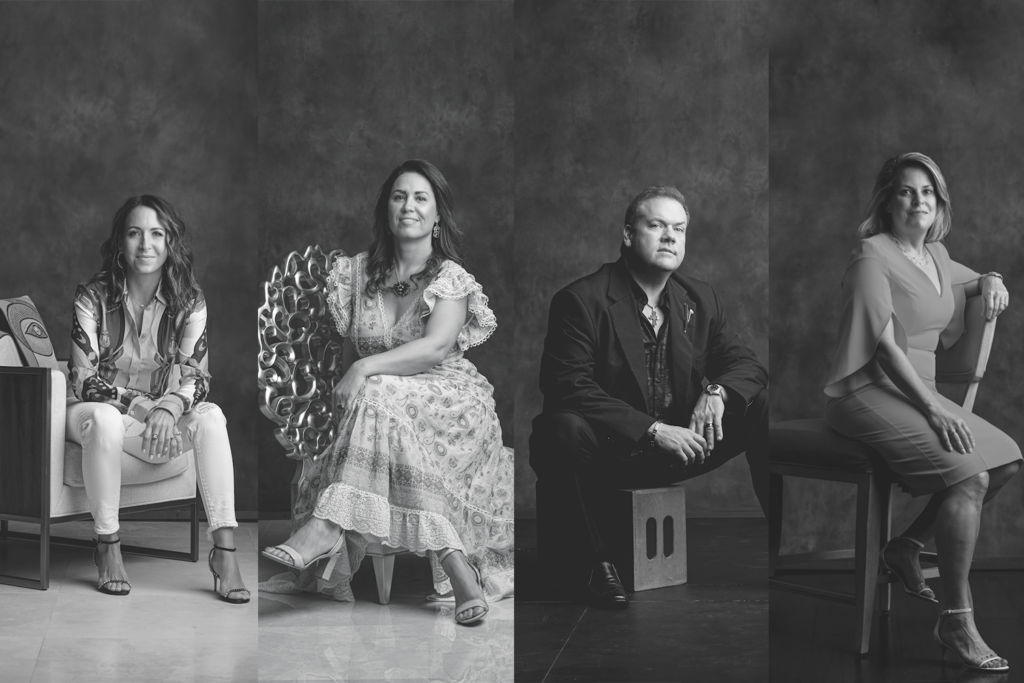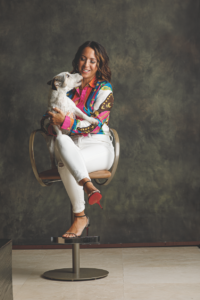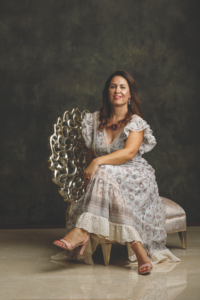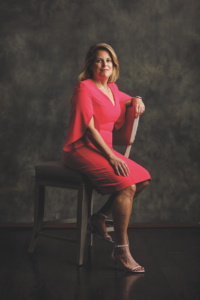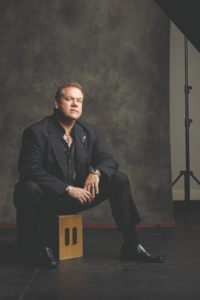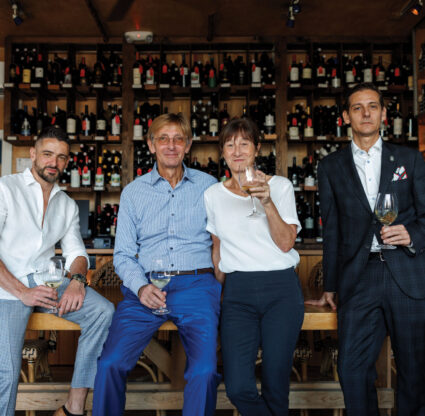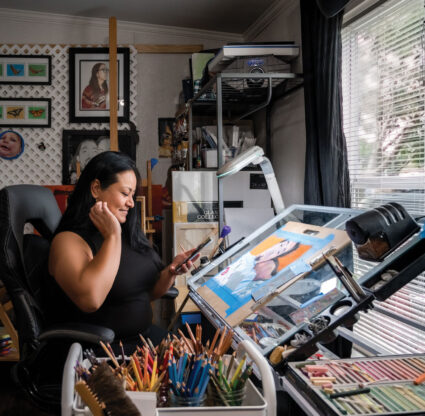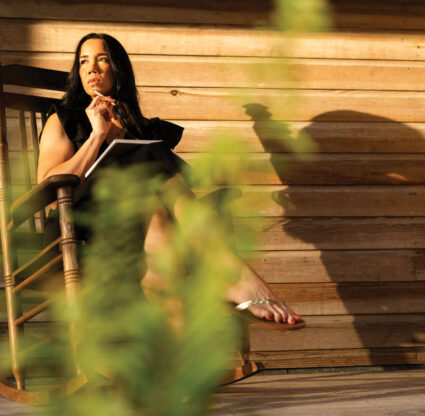This month, we recognize four individuals who put something extra into the causes they support. Whether they offer funding, resources, time or influence, these power philanthropists demonstrate the many different ways one person can make a real and lasting impact. Here, each one tells us in their own words why they give.
Jennifer Parisi, who serves as secretary for Lee Health Foundation’s board of trustees, has been instrumental in growing Kids’ Minds Matter, an initiative to strengthen pediatric mental health services in the region. Addressing children’s wellness from various angles, she’s also working on legislation to ensure safer screening measures for youth-related organizations.
“Over the last few years, children’s mental health has been more front and center in people’s minds, with all of the issues we see kids struggle with these days—bullying, school shootings, divorce, sexual abuse. People see the void that’s existed in the community in being able to help our children.
I’ve always been an advocate for mental health. My family faced some particularly difficult issues, and we couldn’t get the help we needed in Southwest Florida.
Coincidentally, I had recently met Scott Spiezle and Susan Goldy, the founders of Kids’ Minds Matter. They approached me about co-chairing the Secret Garden Gala, and I did in 2018 and in 2019. I’ve also hosted dinners for the cause and help spread the word any way I can.
I know that as a parent, I was fortunate to have financial resources and connections with friends who had connections with doctors. But, many families don’t have the means to help their children.
You experience something, and you don’t want anybody else to go through it. It motivates you to want to help.
The more involved I get, the more I learn about different aspects of the nonprofit world. There are a lot of ways to help.
My daughter and I are advocating for legislative change to address an oversight in Florida public records law, which currently does not allow nonprofits to filter out individuals who have injunctions related to domestic or sexual violence toward minors. Kids with nonprofits are already vulnerable, and there’s no way to tell if the people working with them are potentially dangerous.
It has been a challenge to identify the root of the problem, and even more of a challenge trying to solve it, but we worked through it and hope to have this resolved as early as next year.” —Jennifer Parisi
Anita Lovse has only been in Naples for six years, but she’s already made a big mark in the community, chairing multiple events for the American Cancer Society and Naples Zoo, hosting vintner dinners for the Naples Winter Wine Festival and supporting dozens of local nonprofits at events and behind the scenes.
“When my family and I moved to Naples from Monte Carlo, I got involved almost immediately. This town is so special, and I believe it is up to us to help keep it that way by supporting the local charities that take care of our community.
Naples is full of amazing people who are accomplished and love to share their success. That’s wonderful to see because in other places, there are so many people who have the money, but don’t care to share it. Here, no one has ever declined when I’ve asked for a donation or to help in any way.
I am so impressed by how much previous generations have done for Naples. They paved the way for the current generation of philanthropists and set the standard for us to step up to the plate.
We’ve been able to accomplish a lot through the benefit events over the years. At the Bucket List Bash this year, we brought in nearly $1.2 million for cancer research. Naples Zoo Gala set a record last fall with more than $1.3 million. But the key to a successful event is the cause. Bucket List Bash benefits the American Cancer Society—everyone is affected by cancer. With the Zoo Gala, it’s about the animals.
So even though many galas have been canceled this year due to COVID-19, I know we will continue to support our nonprofits. We’ll just have to get creative in how we do it, because organizations can not afford to take a year off fundraising—cancer is not waiting, childhood hunger is not waiting.
We need to come together and support as much as we can, so this town can remain a hidden jewel for us who live here now and for our children in the future.” —Anita Lovse
Not only did Alise Bartley commit $1 million to grow Florida Gulf Coast University’s counseling program, she also signed up to teach students and lead the Community Counseling Center, which debuted a new building last year.
“About four years ago, my husband and I were considering a move to Florida from Ohio. We knew we wanted to settle in a community where we could make a difference on a large scale, and wanted to do this through a university, since my background is in education. I have a doctorate in counselor education and supervision, with a specialization in marriage and family therapy.
We were impressed to see FGCU’s focus on being a resource to the community, along with being a training facility.
Contributing to mental health was a big priority for us. We have donated $1 million over the course of five years to help develop the counseling program, including plans for the Community Counseling Center and providing scholar-
ships for students.
One of our primary goals when we came here was to create a couples and family counseling track. We need more mental health organizations locally and people who can provide those services. We educate and prepare students to leave—FGCU now has interns at 80 different sites in the community.
Next, we’d like to start a doctoral program. Currently, I’m one of the few accredited supervisors (someone who is trained and accredited to lead, train and mentor) within 50 miles. So, we’d like to train the next group of trainers. Obviously, some of them will end up leaving the region, but considering what an amazing place this is, we’re hoping that more people will stay.
Mental health is not going away. As we continue discussing it, there’s greater awareness, greater insights—and most importantly, greater understanding that there are people who can help. Too many people have suffered in silence for too long.” —Alise Bartley
Recognized as an unofficial mayor of Fort Myers, Marc Collins is the ultimate connector, leveraging his contacts and influence in the city to rally people around causes and host successful fundraisers for organizations such as SalusCare, LARC and the Sidney & Berne Davis Art Center.
“First thing I got involved with in Fort Myers was the Cattle Baron’s Ball, for the American Cancer Society of Lee County. I did that for several years and then Norman and Mary Love asked me to help with Big Brothers, Big Sisters. From there, it’s just been nonstop. I probably do eight to 10 events a year.
I look for things that I feel need my influence and help. I usually go for charities that have a longer trajectory, like LARC (Collins co-chaired for the organization with Dwayne Bergmann and Fran Fenning earlier this year). So, I’ll get involved in causes I believe in with organizations that may need that extra push.
For a successful event, you need volunteers. People who have the time, who show up to the meetings.
I’ve never seen a more giving community—a community that is so open to organic relationships. My wife and I would host a party every year with everyone from the mayor to doctors to your garbage man. That’s the thing about people in Fort Myers; we have a lot of differences, but we have more in common. When I first came here, I lived in Fort Myers for one year and left. I hated it and moved back to Tennessee. But then I came back. What was the difference? The difference was me. When I lived here the first time, I didn’t look for opportunities. But when I came back, I jumped right in and got involved. And that’s what I encourage people to do. See what you can offer. It doesn’t have to be money. You can make calls, you can volunteer, you can find other ways to help.
This season is going to look very different. I think people are going to have to do a lot of smaller things, or virtual events. It’s going to look different for a while. But if people believe in you and the cause, they’re going to give.” —Marc Collins
Photography by Brian Tietz

